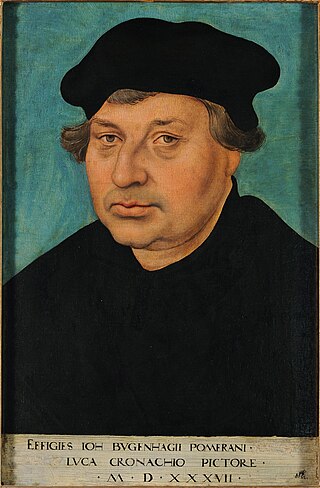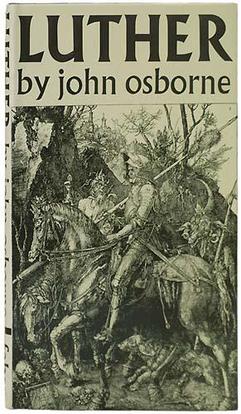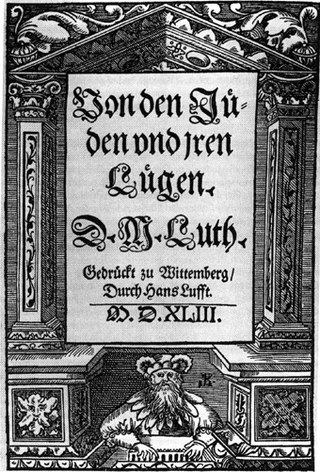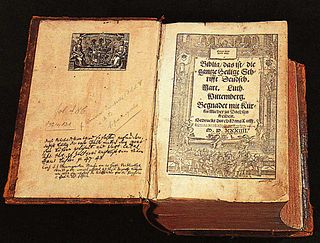The Reformation was a major movement in Western Christianity in 16th-century Europe that posed a religious and political challenge to the Catholic Church and in part posed a challenge to papal authority. The Reformation marked the start of Protestantism and in the Western Church, the Latin Church, remained the Catholic Church.

Johannes Oecolampadius was a German Protestant reformer in the Calvinist tradition from the Electoral Palatinate. He was the leader of the Protestant faction in the Baden Disputation of 1526, and he was one of the founders of Protestant theology, engaging in disputes with Erasmus, Huldrych Zwingli, Martin Luther and Martin Bucer. Calvin adopted his view on the Eucharist dispute.

Wolfgang Fabricius Capito was a German Protestant reformer in the Calvinist tradition.

The Ninety-five Theses or Disputation on the Power and Efficacy of Indulgences is a list of propositions for an academic disputation written in 1517 by Martin Luther, then a professor of moral theology at the University of Wittenberg, Germany. The Theses is retrospectively considered to have launched the Protestant Reformation and the birth of Protestantism, despite various proto-Protestant groups having existed previously. It detailed Luther's opposition to what he saw as the Roman Catholic Church's abuse and corruption by Catholic clergy, who were selling plenary indulgences, which were certificates supposed to reduce the temporal punishment in purgatory for sins committed by the purchasers or their loved ones.

Thomas Müntzer was a German preacher and theologian of the early Reformation whose opposition to both Martin Luther and the Roman Catholic Church led to his open defiance of late-feudal authority in central Germany. Müntzer was foremost amongst those reformers who took issue with Luther's compromises with feudal authority. He was a leader of the German peasant and plebeian uprising of 1525 commonly known as the German Peasants' War.

Reformation Day is a Protestant Christian religious holiday celebrated on 31 October, alongside All Hallows' Eve (Halloween) during the triduum of Allhallowtide, in remembrance of the onset of the Reformation.

Johannes Bugenhagen, also called Doctor Pomeranus by Martin Luther, was a German theologian and Lutheran priest who introduced the Protestant Reformation in the Duchy of Pomerania and Denmark in the 16th century. Among his major accomplishments was organization of Lutheran churches in Northern Germany and Scandinavia. He has also been called the "Second Apostle of the North".

Exsurge Domine is a papal bull promulgated on 15 June 1520 by Pope Leo X. It was written in response to the teachings of Martin Luther which opposed the views of the Catholic Church. The bull censured forty-one propositions summarised from Luther's writings, and threatened him with excommunication unless he recanted within a sixty-day period commencing upon the publication of the bull in Saxony and its neighboring regions.
Protestant Reformers were theologians whose careers, works and actions brought about the Protestant Reformation of the 16th century.
Protestantism originated from the Protestant Reformation of the 16th century. The term Protestant comes from the Protestation at Speyer in 1529, where the nobility protested against enforcement of the Edict of Worms which subjected advocates of Lutheranism to forfeit of all their property. However, the theological underpinnings go back much further, as Protestant theologians of the time cited both Church Fathers and the Apostles to justify their choices and formulations. The earliest origin of Protestantism is controversial; with some Protestants today claiming origin back to people in the early church deemed heretical such as Jovinian and Vigilantius.

Luther is a 1961 play by John Osborne depicting the life of Martin Luther, one of the foremost instigators of the Protestant Reformation. Albert Finney created the role of Luther, which he performed with the English Stage Company at the Theatre Royal, Nottingham, the Théâtre Sarah Bernhardt, Paris, the Holland Festival, the Royal Court Theatre, London, the Phoenix Theatre, London, and the St. James Theatre, New York.

On the Jews and Their Lies is a 65,000-word anti-Judaic and antisemitic treatise written in 1543 by the German Reformation leader Martin Luther (1483–1546).

The Luther Bible is a German language Bible translation by the Protestant reformer Martin Luther. A New Testament translation by Luther was first published in September 1522, and the completed Bible, containing a translation of the Old and New Testaments with Apocrypha, in 1534. Luther continued to make improvements to the text until 1545. It was the first full translation of the Bible into German that used not only the Latin Vulgate but also the Greek.
Lutheranism as a religious movement originated in the early 16th century Holy Roman Empire as an attempt to reform the Roman Catholic Church. The movement originated with the call for a public debate regarding several issues within the Catholic Church by Martin Luther, then a professor of Bible at the young University of Wittenberg. Lutheranism soon became a wider religious and political movement within the Holy Roman Empire owing to support from key electors and the widespread adoption of the printing press. This movement soon spread throughout northern Europe and became the driving force behind the wider Protestant Reformation. Today, Lutheranism has spread from Europe to all six populated continents.

Martin Luther was a German priest, theologian, author, hymnwriter, professor, and Augustinian friar. He was the seminal figure of the Protestant Reformation, and his theological beliefs form the basis of Lutheranism.
Theologia Germanica, also known as Theologia Deutsch or Teutsch, or as Der Franckforter, is a mystical treatise believed to have been written in the later 14th century by an anonymous author. According to the introduction of the Theologia the author was a priest and a member of the Teutonic Order living in Frankfurt, Germany.
The doctrine of the Trinity, considered the core of Christian theology by Trinitarians, is the result of continuous exploration by the church of the biblical data, thrashed out in debate and treatises, eventually formulated at the First Council of Nicaea in AD 325 in a way they believe is consistent with the biblical witness, and further refined in later councils and writings. The most widely recognized Biblical foundations for the doctrine's formulation are in the Gospel of John, which possess ideas that originate in Platonism and Greek philosophy.
Christ and the Sheep Shed is a polemical woodcut made in 1524 by the Nuremberg artist Barthel Beham, one of the Little Masters. Created in the early part of the Protestant Reformation, this woodcut illustrates the beliefs of the artist, as well as other reformers, about the manipulation of the Catholic hierarchy. His work was influenced by reformers, such as Martin Luther, as well as other artists like Barthel's older brother, Sebald. This woodcut was created during the height of the peasant revolts and, though they were less severe in Nuremberg than in other parts of Germany, the social implications were greatly felt. Though there is little information on this particular woodcut, it represents much of the political and social aspects of the Reformation, and interpretation provides insight on the artist's perspective of the era. The distribution of woodcuts was one of the most effective modes of propaganda during the Protestant Reformation. Christ and the Sheep Shed depicts the radical sentiment of the period in which it was created, and portrays the wide-ranging effects of the Reformation and religion on all aspects of German culture. The image is unrealistic as an authentic situation. However, it was used as a symbolic interpretation of the Catholic Church’s manipulation over people and their faith.
Martin Luther (1483–1546) was a German professor of theology, priest and seminal leader of the Reformation. His positions on Judaism continue to be controversial. These changed dramatically from his early career, where he showed concern for the plight of European Jews, to his later years, when embittered by his failure to convert them to Christianity, he became outspokenly antisemitic in his statements and writings.

Propaganda during the Reformation, helped by the spread of the printing press throughout Europe and in particular within Germany, caused new ideas, thoughts, and doctrines to be made available to the public in ways that had never been seen before the sixteenth century. The printing press was invented in approximately 1450 by Johan Gutenberg, and quickly spread to other major cities around Europe; by the time the Reformation was underway in 1517 there were printing centers in over 200 of the major European cities.











